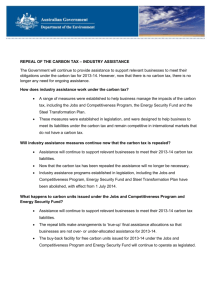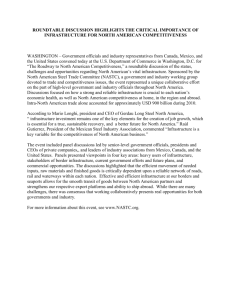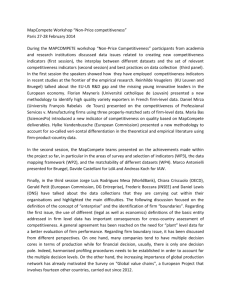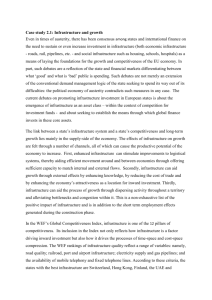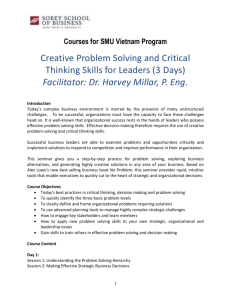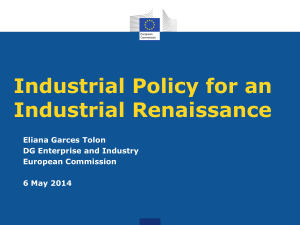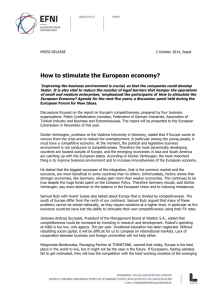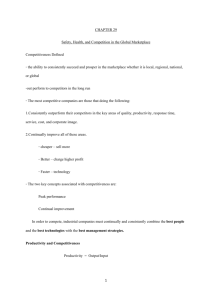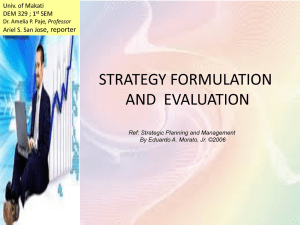Market Research - PowerPoint Presentation
advertisement
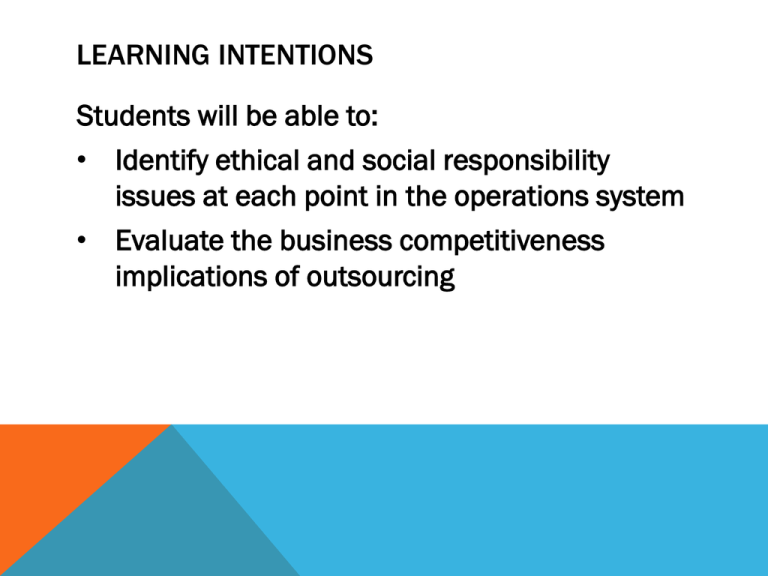
LEARNING INTENTIONS Students will be able to: • Identify ethical and social responsibility issues at each point in the operations system • Evaluate the business competitiveness implications of outsourcing 1. ETHICS IN THE OPERATIONS SYSTEM Let’s try and sort some CSR/ESM issues into the operation system component that they would fall into the realm of. Group the ethical/social considerations in the envelop into the relevant stage of the operations system INPUTS TRANSFORMATION PROCESS OUTPUTS 2. COMPETITIVENESS IMPLICATIONS OF OUTSOURCING 2. COMPETITIVENESS IMPLICATIONS OF OUTSOURCING What are the potential productivity impacts of outsourcing? Pros: • a reduction in the fixed costs of capital and equipment • access to, and quicker supply of products to, emerging markets • lower labour costs • lower production costs (less regulation, lower safety standards) ; therefore, lower product prices and hence greater competitiveness • immunity from industrial action by Australian manufacturing unions. 2. COMPETITIVENESS IMPLICATIONS OF OUTSOURCING Cons: • Communication difficulties with foreign suppliers (order mix-ups, language misinterpretation etc.) . (Could cause delays or see the need to correct mistakes, thereby impacting business competitiveness.) • the risk of political disruption may be higher in developing nations. (Such disruptions will increase costs and therefore prices and hence reduce business competitiveness.) • There could be social responsibility issues (think Bangalore Factory collapse) that impact negatively on the company’s reputation. Might result in customer boycotts, thus lowering sales volumes and therefore business competitiveness 2. COMPETITIVENESS IMPLICATIONS OF OUTSOURCING Cons: • The loss of Australian jobs could attract negative publicity. This might then cause customers to purchase from more socially responsible suppliers. • Unions might strike in advance, thus raising production prices in the shortrun. It may also result in shortages of finished products for sale. Competitiveness will therefore decline. TO DO • Notes should be entirely up to date (and include both textbook and lectures) • Focus should now be on filling in gaps in your knowledge. • Reading over your notes continuously is the biggest time waster ever invented and won’t help you figure out where your knowledge gaps are. • Focus should now be on doing the next practice exam under exam conditions (timing) at home. • Look over feedback/model answers for practice SACS and try to incorporate any bits you missed into your notes
